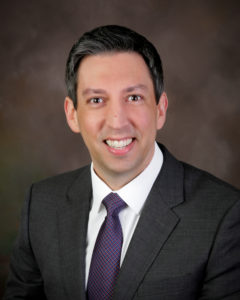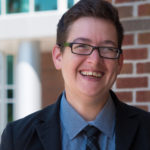Be One UT: Conversations for Change
A virtual gathering for UT faculty, staff and students to address critical issues affecting the university
Upcoming Session
SESSION TITLE:
Communication across Difference: The Theory, Research and Practice of Intergroup Dialogue
Wednesday, April 27, 11 a.m. – 12 p.m. EDT
Disparities laid bare by the pandemic, the persistence of racist violence and other forms of institutionalized oppression and the heightened political divisions evidenced in recent elections highlight the need for productive dialogue across differences to address pressing social problems. In this session, Miles will discuss what we know from the psychological literature on why these dialogues are challenging, what he has learned from his research on intergroup dialogues at UT Knoxville and how we can build our capacities to foster constructive opportunities for intergroup contact through dialogue.
Miles is an associate professor in the department of psychology at UTK. His main research interest is in the process and outcome of intergroup dialogues and other forms of multicultural and social justice education. Miles holds a doctorate in counseling psychology from the University of Maryland, College Park and he completed a pre-doctoral internship at the Counseling Center at the University of Illinois at Urbana-Champaign prior to joining the faculty at UT Knoxville in 2010. Miles is associate editor for the journals Group Dynamics: Theory, Research and Practice and the International Journal of Group Psychotherapy. He is a fellow of Division 49 of the American Psychological Association: The Society for Group Psychology and Group Psychotherapy.
FEATURED SPEAKER:
|
Past Sessions
SESSION ONE Title:
Strategies for Affordable Course Materials: Open Educational Resources and Practices
View the March recorded session here
Tuesday, March 8
The cost of course materials are more important than ever as students deal with the economic impacts of the COVID-19 pandemic. This session will provide an overview of campus strategies to reduce the cost of course materials for students; focusing on the adoption, adaptation and creation of Open Educational Resources (OER). We will discuss the current OER climate in Tennessee and how OER adoption can positively affect student success and engagement.
Rachel Fleming is Scholarly Communications Librarian at the University of Tennessee at Chattanooga, where they coordinate the UTC Library’s Affordable Course Materials Initiative. Rachel is a member of the Tennessee Higher Education Commission’s Tennessee Open Education Task Force and the Principal Investigator on the One UT Grant Tennessee Open and Affordable Course Materials.
In addition to the Conversations for Change session, participate in THEC Tennessee Open Education week sessions online March 7-11 to learn about efforts to prioritize, support, create, adapt or adopt open Eeducation and open esources in Tennessee.
FEATURED SPEAKER:
Rachel Fleming, a Scholarly Communications Librarian at the University of Tennessee at Chattanooga
SERIES Title:
Getting Back into the Swing of Things: Strategies for Establishing New Boundaries and Coping with COVID Burnout
SESSION ONE Title:
A Panel Discussion with UT Faculty and Staff
Feb. 15
Prior to the COVID-19 pandemic, UT faculty and staff were accustomed to balance between work and home life. The pandemic was greatly disruptive to the traditional work environment, causing many UT faculty and staff to quickly adjust to new modes of delivering instruction and new strategies for engaging with students, while simultaneously managing personal matters outside of work. Session one of this two-part series will feature a panel discussion with UT faculty and staff sharing their experiences with boundaries and burnout and the practical steps they and other colleagues are taking to re-establish boundaries and new work routines.
SESSION TWO Title:
A Facilitated Workshop with Debbie Radish-Respess: Executive Coach, Invisible Horizons Coaching
View the February recorded session here
Burnout Setting Boundaries Partipant Workbook
Feb. 22
We’ve all experienced burnout in some form or fashion. Burnout is a destination. What if you could prevent, alleviate or at least minimize burnout going forward? The greatest oversight on addressing burnout is focusing only on the burnout itself and failing to develop new mindsets, habits and behaviors required to recognize the symptoms and ultimately, the root causes of burnout. Being able to proactively engage with things that affect your well-being directly impacts how we learn, connect, grow and lead!
Learning Objectives:
- Define burnout (what it is and is not)
- Understand how burnout affects you, your family and your colleagues and friends
- Learn new strategies on how to recognize burnout “before” it happens – in you and others
- Learn how to set clear boundaries and expectations through making collaborative requests
- Walk away with a personal action plan that can be implemented immediately
Session Title:
Meet the new UT System Assistant Vice President for Student Success Bernard Savarese
View the recorded October session
Bernard Savarese was recently named assistant vice president for student success for the University of Tennessee System. Savarese is the former assistant vice president for student success and the student experience at New York University (NYU). Savarese has spent the last two decades leading teams to enhance the student experience and improve student outcomes. During this informal session, Bernie will have a chance to share his thoughts on national trends in student success, his values and early priorities, as well as engage with those who attend to learn more about campus-level student success priorities.
Featured speaker:

Bernie Savarese, UT System Assistant Vice President for Student Success
Session Title:
From Conversation to Action: Supporting Students in Recovery
View the recorded September session
National Recovery Month, a national observance held every September, celebrates the gains made by those in recovery and promotes substance use treatment and mental health services that lead to a healthy and rewarding life. Our September session will focus on substance use and recovery within the UT System.
Alcohol use by college students is associated with academic difficulties, including lower GPA and lower rates of persistence. According to the 2019 National Survey on Drug and Health (NSDUH) conducted by Substance Abuse and Mental Health Services Association (SAMHSA), 33% of college students (ages 18-22) reported binge drinking in the past month, and 8.2% reported heavy alcohol use in the past month. As we consider the impact of the pandemic on substance use and mental health, it is critical to the success of UT students to understand these challenges and available interventions. In this session, presenters will introduce the issue of substance use as it relates to college students and highlight campus-level programming and support for students in need of recovery. Presenters and participants will engage in Q&A for the latter part of the session.
Featured Speakers:
- Desiree Stone, campus counselor and adjunct professor of psychology (UTS)
- Kathy Gibbs, assistant vice chancellor student academic support services and inclusion (UTHSC)
- Keilan Rickard, director of the Counseling Center (UTC)
- Lauri Dusselier, director for the Center for Health Education and Wellness (UTK)
- Leigh Cherry, coordinator for student success initiatives (UT System)
- Nathan Payne, lifeline coordinator, Tennessee Department of Mental Health and Substance Abuse Services
- Shannon Perry, director of the Office of Student Conduct and Care (UTM)
SESSION TITLE:
Facilitating Meaningful Discussions of Race on Our Campuses
For our democracy to be sustained, we must have the capacity to engage with one another on the difficult topics that face our communities and nation. In the United States, honest and meaningful discussions of race have been a historical challenge. Building on years of experience and clear conversations with more than 100 colleagues this academic year, this session will explore the challenges facing us, lessons learned and the strategies available to help our students and communities confront the question of racial inequities.
Featured speaker:
Michelle D. Deardorff, UTC Professor of Government and Department Head of Political Science and Public Service
Michelle D. Deardorff is the Adolph S. Ochs Professor of Government and Department Head of Political Science and Public Service at the University of Tennessee at Chattanooga. Deardorff’s teaching and research focus on the constitutional and statutory protections surrounding gender and race, as well as exploring the insights provided by political theory. Before coming to UTC, Deardorff spent a decade teaching at Jackson State, a historic black university in Mississippi and another 12 years at Millikin University, a small private college in Illinois. She is a founding faculty member of the Fannie Lou Hamer National Institute on Citizenship and Democracy, a coalition of academics who promote civic engagement and popular sovereignty through the study of the struggle for civil rights in the United States. Her twenty-year engagement with her colleagues resulted in pedagogical resources, workshops, tours and two museums designed for K-12 educators, community college and university faculty, students and community members, promoting greater understanding of the promise and challenges of democracy. Her most recent book, Race and the Law in the United States: A Contemporary Perspective, is under contract with Cambridge University Press. Throughout the past academic year, Michelle led 11 groups of faculty, staff and administrators at UTC in seven-week discussions of Derald Wing Sue’s Race Talk and the Conspiracy of Silence on improving our engagement and facilitation of meaningful discussions of race in our communities.
SESSION TITLE:
Addressing Hidden Hunger: Challenges and Opportunities to Combat Food Insecurity Among UT Students
View the recorded April session
Current research estimates that approximately 35-50 percent of college students are food insecure. A 2018 study to assess food insecurity across the UT System discovered that 36 percent of UT students experienced food insecurity. As we consider the ongoing impact of the COVID-19 pandemic, it is critical to the success of UT students to understand this issue. In this session, presenters will: 1) introduce the issue of food insecurity as it relates to college students, 2) highlight campus-level programming and support to address food insecurity and other basic needs, and 3) help participants identify ways to become involved on their campus.
Featured speakers:
Abigail Brumfield, interim assistant director for outreach and initiatives, UTK
Alison Brown, community engagement specialist, UTHSC
Amber Heeke, social impact coordinator, UTK
Ashlyn Anderson, director of advocacy, Student Basic Needs Coalition, UTK
Betsy Anderson Steeves, assistant professor of nutrition, UTK
Brett Fuchs, associate dean of students, director of student outreach and support, UTC
John Abel, assistant vice chancellor for student affairs, UTM
Mikayla Prince, chapter president, Student Basic Needs Coalition, UTK
Ryan Martin, assistant director of residence life, UTM
SESSION TITLE:
Social Determinants of Health and the Campus Community
View the recorded March session.
The social determinants of health (SDoH) are responsible for approximately 80% of our health status. While the social determinants of health are often the focus of the health care system and community health workers, they are also important drivers of wellness on campus. This talk will introduce the SDoH, considerations for SDoH on college campuses and host small group discussion to explore how higher education professionals can look and work upstream to support wellness across the campus community.
Featured SPEAKER:
Charles Snyder is the assistant vice chancellor for Student Affairs and Community Engagement at the University of Tennessee Health Science Center. At UTHSC, he serves as the institution’s chief Student Affairs officer and also directs the UTHSC QEP titled Community Engaged Care which focuses on enhancing student learning about the social determinants of health through curricular integration, co-curricular programing and community partnerships to improve the health status of Tennesseans across the state.
In addition to his administrative duties, Snyder is an applied medical anthropologist focusing on three distinct areas that impact public health. He has worked on developing interventions to drug use, addiction and drug-related chronic illness in environments where the use of drugs is deeply embedded within the cultural framework and sense of identity. Snyder also conducts community-based projects that aim to improve patient-provider relationships, patient adherence and the provision of culturally-appropriate health care services. Snyder’s third area of focus is on community response to crisis with particular emphasis on displaced populations as may be found following large-scale natural disasters or military conflict. In addition to his work on college campuses, Dr. Snyder has conducted field projects in East Africa, Haiti, the South Pacific and with Native people in the United States.




